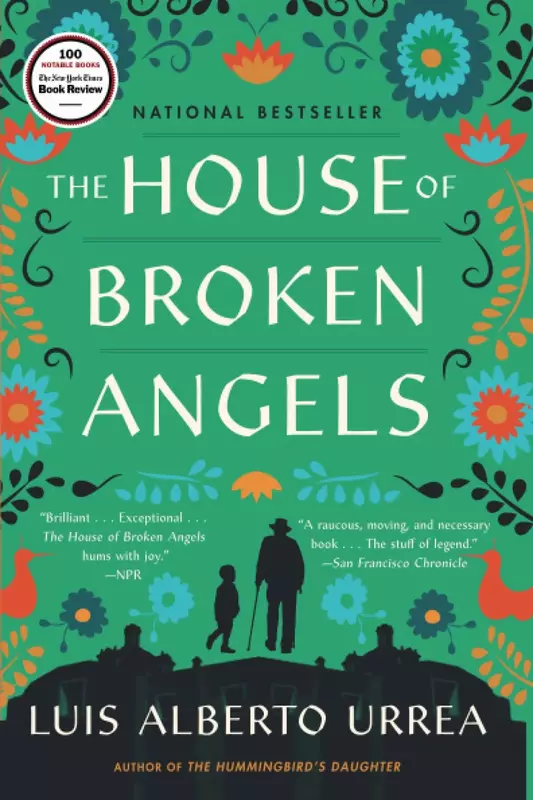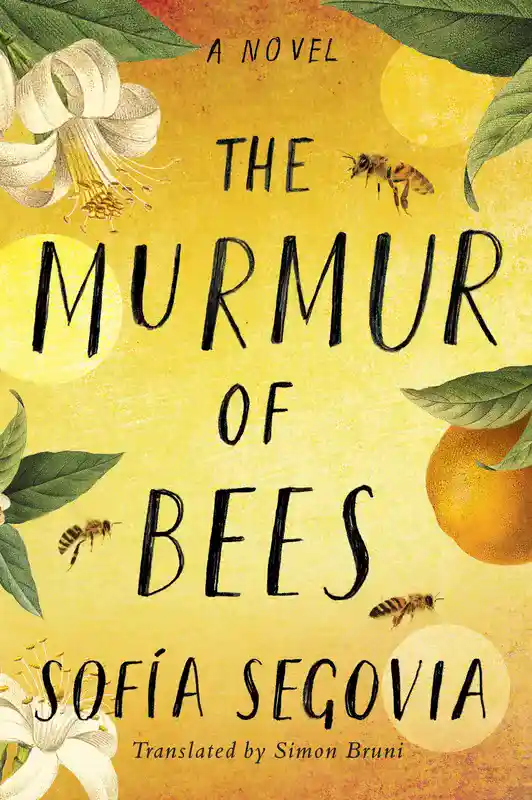This post may contain affiliate links. Read more here.
Book club questions for Of Women and Salt by Gabriela Garcia explore the very core of our humanity, the wounds we’ve endured, and how they’re passed on. This is a story of trauma, motherhood, love, addiction, and immigration.
My book club questions contain spoilers, so make sure you’ve read the book first!
Of Women and Salt is an instant New York Times bestseller and a Good Morning America book club pick that won numerous awards. This is a moving intergenerational story of determination, courage and survival. And in many ways, a stunning accomplished first novel. It cultivates true and profound work on migration, legacy, and survival, and it will please the readers for its phenomenal storytelling, which is why I highly recommend this book.
Below are the book club questions for Of Women and Salt. I hope you will find it useful to discuss these questions in detail with your book clubs!
The Synopsis
A sweeping, masterful debut about a daughter’s fateful choice, a mother motivated by her own past, and a family legacy that begins in Cuba before either of them were born
In present-day Miami, Jeanette is battling addiction. Daughter of Carmen, a Cuban immigrant, she is determined to learn more about her family history from her reticent mother and makes the snap decision to take in the daughter of a neighbor detained by ICE. Carmen, still wrestling with the trauma of displacement, must process her difficult relationship with her own mother while trying to raise a wayward Jeanette. Steadfast in her quest for understanding, Jeanette travels to Cuba to see her grandmother and reckon with secrets from the past destined to erupt.
From 19th-century cigar factories to present-day detention centers, from Cuba to Mexico, Gabriela Garcia’s Of Women and Salt is a kaleidoscopic portrait of betrayals―personal and political, self-inflicted and those done by others―that have shaped the lives of these extraordinary women. A haunting meditation on the choices of mothers, the legacy of the memories they carry, and the tenacity of women who choose to tell their stories despite those who wish to silence them, this is more than a diaspora story; it is a story of America’s most tangled, honest, human roots.
In love with literature? Try audio books or writing classes
for free for 30 days.✨
Book Club Questions for Of Women and Salt
1. The novel begins with this sentence: “Jeanette, tell me that you want to live.” How did this intimate direct address from mother to daughter set the tone for some of the themes that we encounter in the following pages?
2. María Isabel loses two of the most important people in her life and gives birth to her daughter, Cecilia. In what way does the concept of loss continue to impact/inform the decisions these women make?
3. Examine the ways in which Jeanette’s experiences at the foam party and her father’s abuse shape her understanding of sexuality, power, and consent, and how it leads to her spiral into drug addiction. How does this reflect on the larger societal issues of gender and sexual violence?
4. Compare and contrast the mother-daughter relationships in this novel. What are some of the differences? And what are the similarities?
5. The first edition copy of LES MISÉRABLES appears in multiple scenes; the first time we see it is in Cuba in 1866, and the last time we see the book is in present-day Miami. What do you think the author is trying to say about the way stories transcend generations?
6. Analyze Dolores’ internal struggle as she witnesses the violence and chaos of the Cuban Revolution and the way it reflects on her own domestic turmoil caused by her abusive husband, Daniel. How does her sympathy for the revolution affect her decision to eventually kill him and what does this say about her own sense of agency and power?
7. How did you feel about jumping through time and place in this novel? Discuss the importance of narratives that defies chronological/sequential order.
8. What is the significance of the recurring phrase, “We are force”?
9. Think about the sections where the character is speaking from their first-person point of view. Why do you think the author allows certain characters — like Gloria and Maydelis — to tell us their stories in their own voices, instead of narrating from a distant third-person narrator?
10. What did you think of the novel’s ending? Could things have turned out differently for Jeanette? How?
11. How does María Isabel’s occupation as a cigar roller, traditionally a man’s job, serve as a symbol of her desire for independence and freedom in the face of political unrest and suppression in 1866 Cuba?
Bonus Book Club Questions for Of Women and Salt
These additional discussion questions explore different elements of the book, and I would highly suggest adding them to your book clubs as well.
12. Which chapter surprised you the most? And why?
13. The story exposes the flaws and inequities in the immigration system. How did Gloria’s deportation become a catalyst for this story?
14. Explore the theme of family and intergenerational trauma in the novel through the experiences of the different generations of women. How do the choices and actions of the previous generations shape the lives of the next, and how does this reflect on the cyclical nature of oppression and trauma?
15. Study the effects of drug addiction on the characters and their families in the novel. How does the addiction take control of their lives, relationships and decision making? How does this reflect on the societal issues surrounding addiction and its treatment?
16. Analyze how the idea of independence and freedom is portrayed in the novel through the different characters and their experiences. How does the pursuit of freedom come at a cost for some characters and how does this relate to the larger historical and political context of Cuba?
Additional Recommendations
Hope you enjoyed my book club question for Of Women and Salt by Gabriela Garcia! Here are some more of my book club recommendations.
The House of Broken Angels by Luis Alberto Urrea
In this “raucous, moving, and necessary” story by a Pulitzer Prize finalist (San Francisco Chronicle), the De La Cruzes, a family on the Mexican-American border, celebrate two of their most beloved relatives during a joyous and bittersweet weekend.
“All we do, mija, is love. Love is the answer. Nothing stops it. Not borders. Not death.”
In his final days, beloved and ailing patriarch Miguel Angel de La Cruz, affectionately called Big Angel, has summoned his entire clan for one last legendary birthday party. But as the party approaches, his mother, nearly one hundred, dies, transforming the weekend into a farewell doubleheader. Among the guests is Big Angel’s half brother, known as Little Angel, who must reckon with the truth that although he shares a father with his siblings, he has not, as a half gringo, shared a life.
Across two bittersweet days in their San Diego neighborhood, the revelers mingle among the palm trees and cacti, celebrating the lives of Big Angel and his mother, and recounting the many inspiring tales that have passed into family lore, the acts both ordinary and heroic that brought these citizens to a fraught and sublime country and allowed them to flourish in the land they have come to call home.
Teeming with brilliance and humor, authentic at every turn, The House of Broken Angels is Luis Alberto Urrea at his best, and cements his reputation as a storyteller of the first rank.
The Murmur of Bees by Sofía Segovia
From a beguiling voice in Mexican fiction comes an astonishing novel―her first to be translated into English―about a mysterious child with the power to change a family’s history in a country on the verge of revolution.
From the day that old Nana Reja found a baby abandoned under a bridge, the life of a small Mexican town forever changed. Disfigured and covered in a blanket of bees, little Simonopio is for some locals the stuff of superstition, a child kissed by the devil. But he is welcomed by landowners Francisco and Beatriz Morales, who adopt him and care for him as if he were their own. As he grows up, Simonopio becomes a cause for wonder to the Morales family, because when the uncannily gifted child closes his eyes, he can see what no one else can―visions of all that’s yet to come, both beautiful and dangerous. Followed by his protective swarm of bees and living to deliver his adoptive family from threats―both human and those of nature―Simonopio’s purpose in Linares will, in time, be divined.
Set against the backdrop of the Mexican Revolution and the devastating influenza of 1918, The Murmur of Bees captures both the fate of a country in flux and the destiny of one family that has put their love, faith, and future in the unbelievable.
Thank you for reading my book club questions and happy reading! ❤️

